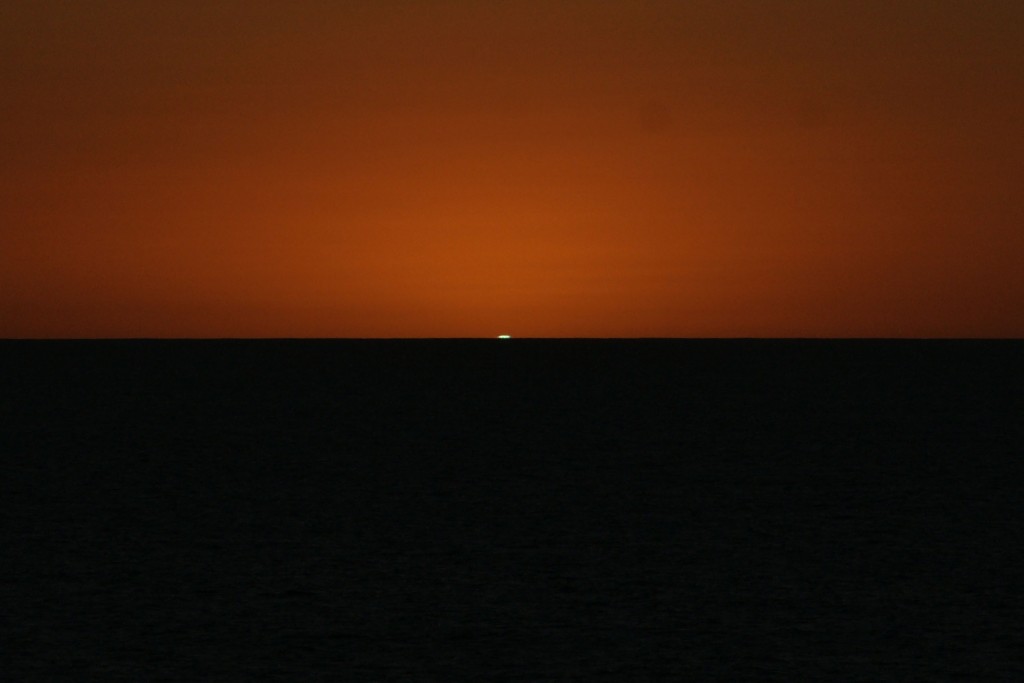The story of creation in the Bible and the Torah was full of positive pronouncements. After each day of creation, when God considered what He had done, it was proclaimed “good”:
- “God saw that the light was good” (Genesis 1:4) Day 1.
- Dry ground was separated from the sky and the seas and it was good (1:10) Day 2.
- Creation of vegetation – “And God saw it was good.” (1:12) Day 3.
- Sun for day, moon for night – “And God saw that it was good.” (1:18) Day 4.
- Animals, fish, birds… – “And God saw that it was good.” (1:21) Day 5.
- God made man and woman in his own image… “and it was very good.” (1:31) Day 6.

One could easily come to the conclusion that all of creation was perfect and that there were no needs by design. One might even venture to think that man’s needs were only introduced into this world through the later scourge of sin, and that before this “fall” from a perfect state, everything was all good. But that would be missing a very critical part of the story. In fact, it is perhaps the most important descriptor about the natural state of man as God created him (and her) and it sets the stage for the rest of the story recorded in the Bible. If we miss this critical piece, it would be easy to become mistaken about what our greatest needs are as humans. We might even come to think that our greatest need is to minimize our suffering and to avoid the effects of evil.
The foundational statement comes after God puts man in the Garden of Eden, the very place many hold as the ideal of “perfection”.
The Lord God said, “It is not good for the man to be alone.” (Genesis 2:18)
After a parade of proclamations of “goodness”, this one statement of “not good” stands out like a beacon. Indeed it’s strength and importance are amplified because of the contrast between what was pronounced good (6 times) and what was not good (a single solitary statement). The story of creation and the rest of the Bible really centers about the one need that God has built into man (and woman) from the start. Mankind’s ultimate need is to address his (and her) Aloneness. Everything else is subordinate to this one need, and, as we shall eventually see, this figures prominently into the answer for why God could allow suffering.
If we recognize that man’s paramount need is to not be alone, it changes how we view the rest of the events in the story of creation and of the Bible. It also changes how we analyze the relationship between man and God, as well as between man and fellow man. Our fundamental basis for theology shifts from seeking to obtain perfection (the absence of sin – and ultimately evil), to maintaining connection with whom who would keep us from being alone.
We get a hint of this in the very first question ever asked in the story of creation, and thus, in the Bible: “Where are you?” (Genesis 3:8). The first need described in the Bible is one of aloneness. The first question in the Bible places that need front and center and brings attention to the fact that the most important question to ask is not “Why”, but “Where?”. For God to ask Adam and Eve “where” they were underscores the fact that the created has left the proximity of the Creator and is presently alone. In hiding from the Creator, man (and woman) has exacerbated the problem that he was designed with – that it was “not good” for mankind to be alone.
What about Eve? Wasn’t she a sufficient solution for Adam’s aloneness? Didn’t God create her specifically to fix his problem of aloneness? It turns out that Adam was more than willing to “throw her under the bus” and ascribe blame for his own indiscretions to his human companion and thereby broke down the bonds of trust that would be necessary for them to meet each other’s needs.
So mankind was made with one deficiency – aloneness. There were two ways to address that aloneness, by being in communion with the Creator, and by being in communion with his human “helpmate.” The story of creation describes how man fails to maintain those both of those relationships in favor of finding independence and self justification. The rest of the Bible is a treatise on how the Creator will still find a way to meet that paramount need to address the aloneness that was designed into mankind at the point of his (and her) creation.